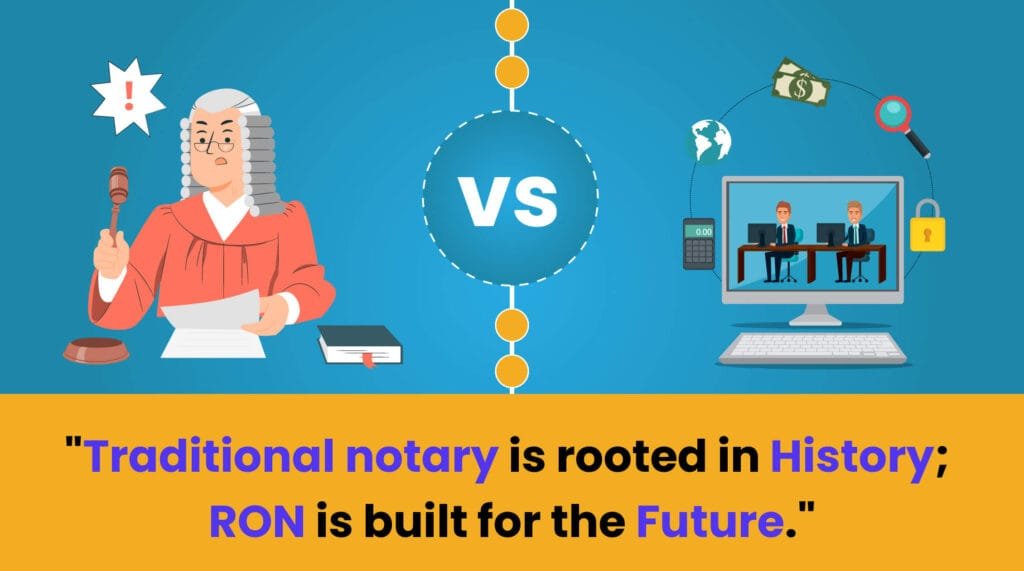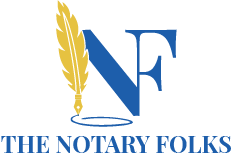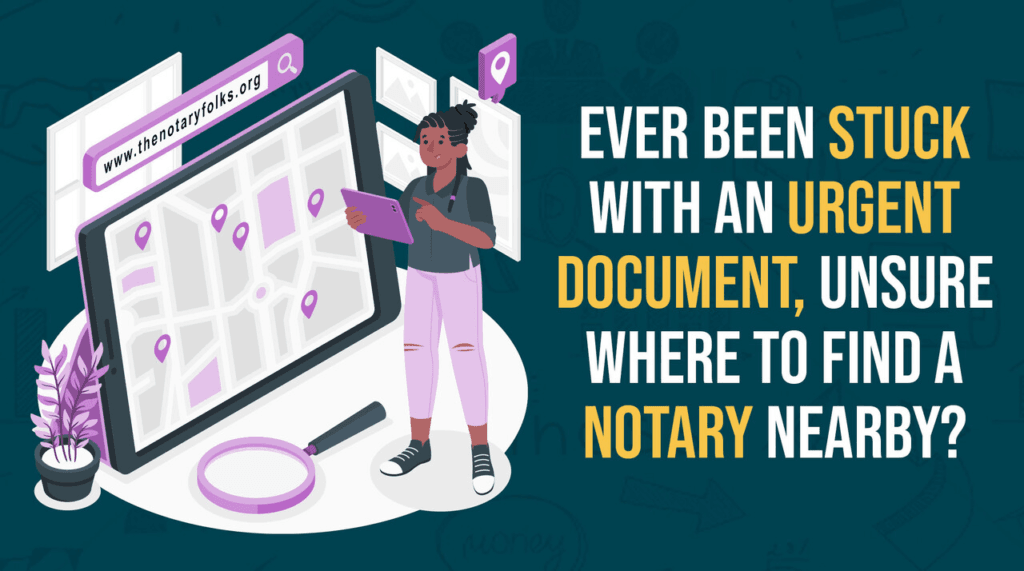
When it comes to RON vs traditional notary services, which option best suits your document needs? You might have heard about Remote Online Notarization (RON) and traditional notary services, but understanding their key differences is crucial for making the right choice. Follow along as we break down both options to help you decide. Let’s explore the advantages and limitations of each notarization method so you can make an informed decision that works for your specific situation.
What is Remote Online Notarization (RON)?
Remote Online Notarization (RON) is a fully digital process for completing a notarial act without meeting the notary in person. Instead, it relies on RON technology, which includes secure video calls, advanced identity proofing, and electronic notary seals. Here’s how the RON process works:
- Video Meeting: You and the notary connect via a secure video call.
- ID Verification: You verify your identity using a government-issued ID and, sometimes, facial recognition.
- E-Signatures: You electronically sign the document, and the notary applies a digital seal.
RON services have gained popularity because they allow notarized documents to be completed remotely, offering unparalleled convenience and flexibility.
What is a Traditional Notary?
A traditional notary service is the time-tested, in-person method of completing a notarial act. It involves meeting a commissioned notary public face-to-face, presenting identification, and signing the document physically. Here’s how the process works:
- In-Person Meeting: You and the notary meet at their office or another agreed location.
- ID Check: The notary reviews your identification to confirm your identity.
- Paper Signatures: You physically sign the document, and the notary adds their official stamp.
This approach is often required for complex or highly sensitive legal documents, such as wills or real estate deeds.
Key Differences: RON vs. Traditional Notary

- Convenience
- RON: Handle everything from home. No travel is required.
- Traditional Notary: Requires meeting in person, which might not suit everyone.
- Availability
- RON: Available 24/7 with many online platforms.
- Traditional Notary: Limited to the notary’s business hours.
- Document Type
- RON: Works best for electronic documents. Not all paper documents can be notarized this way.
- Traditional Notary: Handles both digital and physical documents seamlessly.
- Security
- RON: Uses advanced tools like identity proofing, encryption, and knowledge-based authentication to secure the notarization process. However, there are concerns about data privacy and reliance on technology.
- Traditional Notary: Relies on manual ID checks and paper records.
- Acceptance
- RON: Acceptance of RON notarized documents varies by state due to differences in RON legislation. For example, some states in the United States don’t fully recognize RON transactions for all document types.
- Traditional Notary: Universally accepted for all notarial acts and legal documents.
- Cost
- RON: Often more affordable due to fewer overhead costs.
- Traditional Notary: Fees can include travel costs, especially when using a mobile notary.
What Is Remote Ink Signed Notarization (RIN)?
An alternative to RON, Remote Ink Signed Notarization (RIN) is a hybrid method where the signer and notary connect via video conferencing, but the document is signed physically. This method is less common than RON but is used in some states under specific executive orders.
FAQs About Notarization
Not yet. While many states recognize RON, some still have restrictions. Always check local regulations.
It depends on your state’s laws and the type of document. Certain documents, like wills or real estate deeds, might require in-person notarization.
Yes, RON uses advanced verification methods and encryption. However, make sure to use a reputable platform.
You’ll need a computer, a reliable internet connection, a webcam, and your ID.
If your document is complex or sensitive, or you’re unsure about RON’s legality in your area, traditional notarization is a safer choice.
Which Option Is Right for You?
- Go with RON if: You value convenience, work with digital documents, or have a tight schedule.
- Choose traditional notary services if: Your documents are complicated, you prefer face-to-face interaction, or your local laws don’t support RON.
Conclusion
Both RON and traditional notary services have their unique advantages. RON is modern and efficient, while traditional notary services offer a trusted, time-tested approach. The best option depends on your situation and preferences.
Let’s Get Started!
No matter which option you choose, The Notary Folks can help. Whether you’re exploring the convenience of RON or the familiarity of traditional notarization, our team has the expertise to meet your needs.
Contact us today and let’s make notarizing your documents simple and stress-free! Click below to schedule an appointment with our experts for insights and guides.


